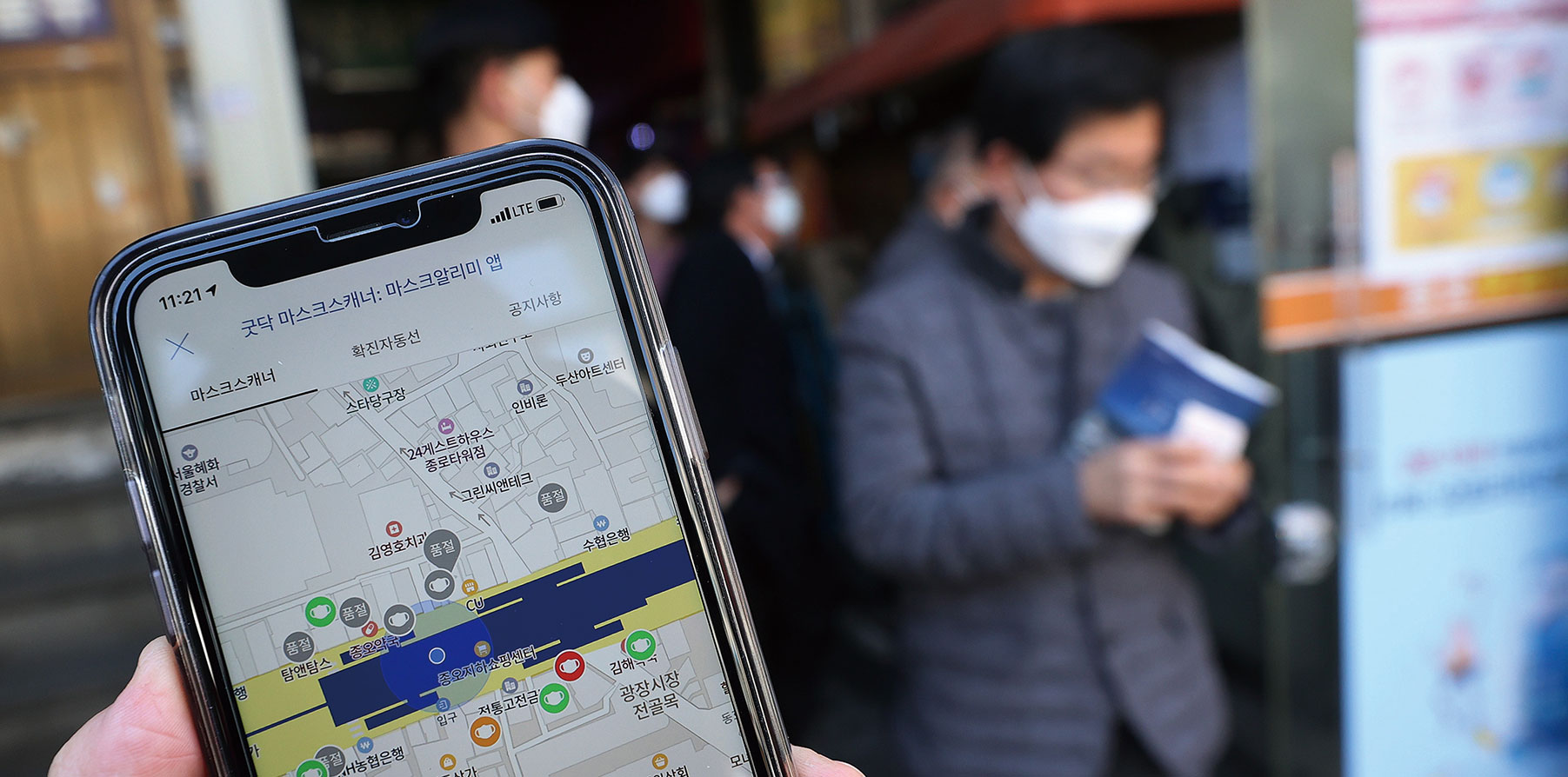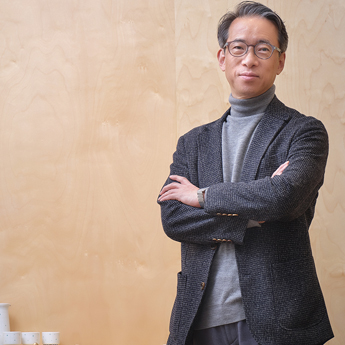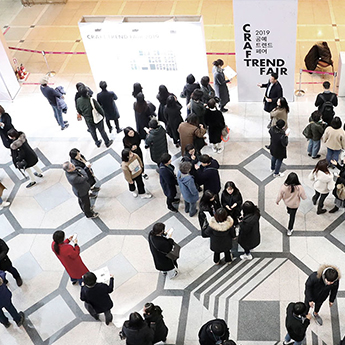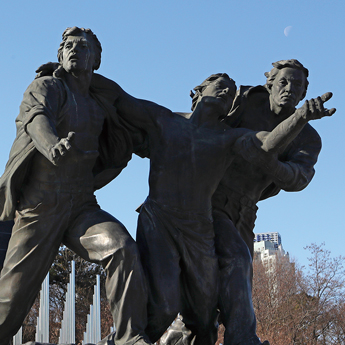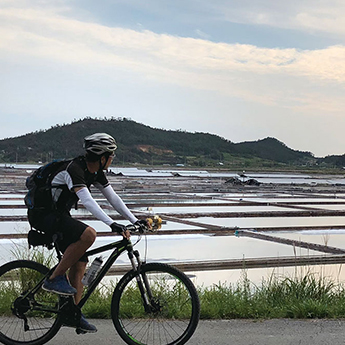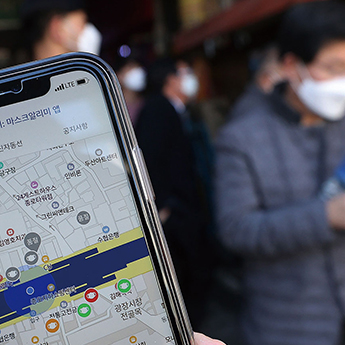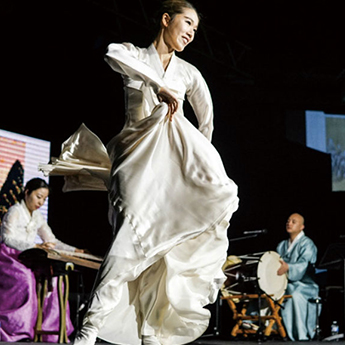Current Korea
Tracking Success
Countrywide Efforts Against a Pandemic
In addition to fast and widespread testing, Korea’s use of high-tech surveillance is considered a key factor behind the nation’s curtailing of the number of confirmed cases and deaths from COVID-19. Critics are unhappy over alleged violations of personal information in the process, but the government’s approach has prevented the worst-case scenario amid the pandemic.
Written by • Sohn Ji-ae
Korea has utilized digital surveillance technologies extensively and aggressively to fight the COVID-19 pandemic. Surveillance camera footage, smartphone location data and credit card transactions have been used to trace and track the movements and points of contact of those infected. Mobile apps keep people informed of the latest cases and send alerts on confirmed cases coming in contact with infected individuals. Even wristbands monitor those in quarantine and issue warnings not to leave their facility.
The government’s digital tracking strategies have worked, with aggressive tracing helping the country flatten the curve and minimize a further spread of the pandemic. Many governments worldwide have attributed much of Korea’s containment of the coronavirus to its high-tech digital surveillance.
Public Health vs. Personal Privacy
Despite their success, digital surveillance measures have also raised fears among privacy advocates and foreign media. They argue that the disclosure of data on confirmed patients in the process of tracking and tracing could threaten personal privacy in a highly wired society. Foreign media have also questioned the justification of collecting and releasing personal data in the interest of public safety.
The New York Times on March 23 said, “Increased surveillance and health data disclosures have also drastically eroded people’s ability to keep their health status private,” and CNN on March 20 issued a warning saying, “Tracking measures to contain the pandemic could pave the way for greater government surveillance.” CNBC on April 13 added, “The purpose of collecting personal information needs to be clear, so that people can see when the benefits outweight the costs.”
The French financial daily Les Echos on April 6 was especially harsh on Korea over its handling of personal data at the expense of personal privacy. In an op-ed, a lawyer denounced Korea as a country with weak protection of personal privacy and human rights.
Proper Balance
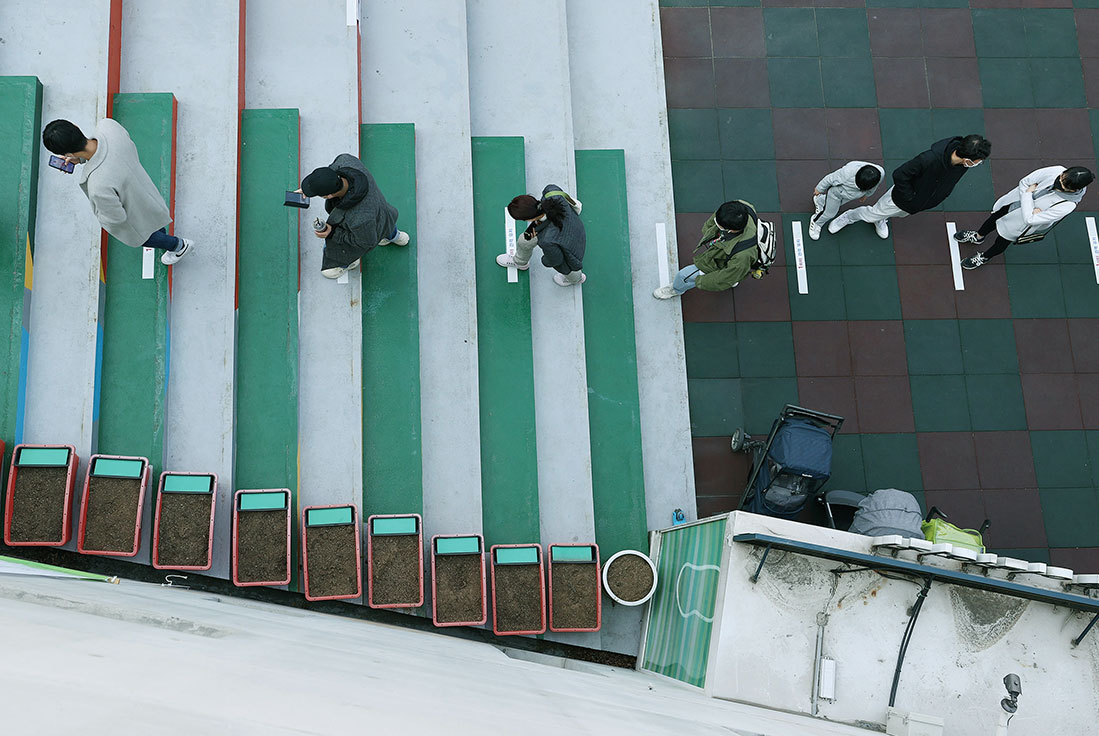
People on April 10 practice social distancing while lining up for early voting in this year’s general elections. © YonhapNews
What is undeniable, however, is that rigorous tracking and tracing of every suspected case through digital surveillance have helped curb the outbreak and save many lives in Korea. This is why the nation’s strategy of releasing to the public real-time information on those infected is globally recognized as a major safeguard against a further spread of the coronavirus.
The Korean people trust their government to share transparent and accurate information on the pandemic. Thanks to this trust, the populace has cooperated in data collection and received the latest updates on confirmed cases via tracing apps. This participation has greatly fueled the success of the nation’s digital surveillance.
Amid growing criticism over violation of personal privacy, the government should aim to balance public safety with the privacy rights of individuals.
To minimize privacy risks, health officials vowed to keep refining their guidelines on data collection and disclosure. They also promised more caution and vigilance in releasing personal information on confirmed cases, such as excluding information that would identify a patient.
“We will balance the value of protecting individual human rights and privacy with the value of upholding the public interest in preventing mass infections,” said Jeong Eun-Kyeong, director-general of the Korea Center for Disease Control and Prevention.
Under this balanced approach, the nation offers important lessons to other countries on using technology to effectively keep the coronavirus in check.
The Diplomat, an online news magazine, on April 13 wrote, “(Korea’s) experiment in pandemic surveillance provides important preliminary insights for democracies seeking to adopt similar measures against COVID-19.” It mentioned two things that stood out in Korea’s surveillance approach, saying, “Establishing the legal boundaries of surveillance and developing best practices through public conversations with transparency are two ways democratic governments can strive toward a balance between public safety and individual privacy.” The Diplomat added that other democracies must start this discussion to tackle today’s – as well as tomorrow’s – pandemic.

